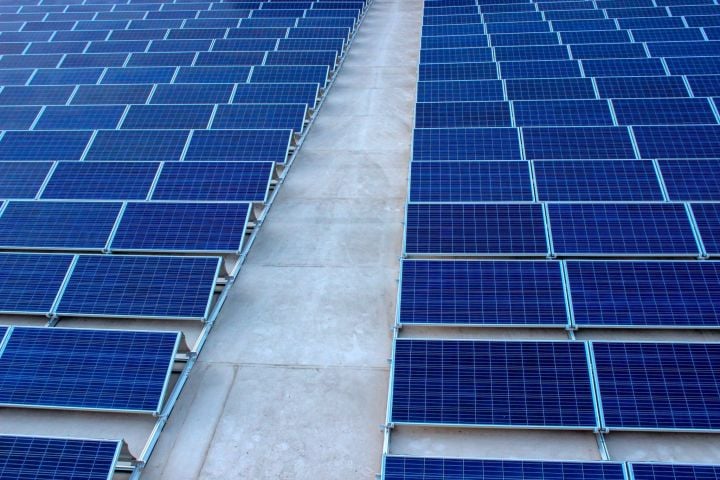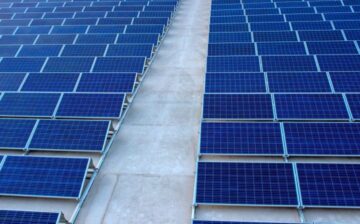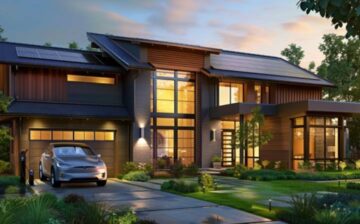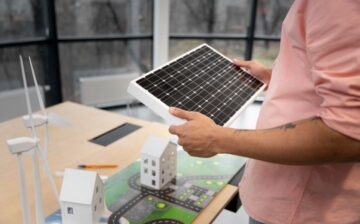
Because more people are starting to live more eco-friendly lifestyles, solar power is becoming increasingly popular because of the numerous financial and environmental benefits.
People are incorporating eco-friendly moving habits and improvements in their homes as well. Living an eco-friendly lifestyle will, of course, require you to be more conscious of your water usage or knowing when to turn off the lights, but it’s not an impossible task.
If you’re interested in switching to solar power, analyze your options to guarantee you make the right decision for you and your home.
Typically, solar power is harnessed through residential solar or community solar opportunities.
Learn about the essential concepts, advantages, and disadvantages of residential and community solar to choose the perfect alternative energy solution for you.
Understanding Solar Power
Solar power is the process of generating energy through solar panels.
Heat and energy produced by sunlight are converted into usable electricity.
Large amounts of sunlight are focused into a small beam by utilizing lenses, mirrors, and solar tracking systems.
Harnessing solar power can be accomplished by directly using photovoltaics or indirectly using concentrated solar power.
Solar power provides numerous financial and environmental benefits, presenting an excellent alternative to traditional electricity resources.
If you’re interested in switching to solar power, understand the important concepts and potential methods, residential solar and community solar, to create solar energy.
What is Residential Solar?
Residential solar involves the installation of personal solar panels to directly power your home.
Solar panels are installed on your property, usually on top of the roof.
Before installing solar panels, carefully assess your property, consult professionals, and consider smart purchases to ensure the process is completed successfully.
When sunlight hits your solar panels, electricity is produced and utilized throughout your home.
Residential solar panels are generally connected to the power grid, so you always have readily available electricity. Regardless of how much solar power your panels are producing at each moment, you’ll be able to rely on either the utility company or stored solar energy to provide electricity.
Additionally, any excess solar energy can be fed back to the power grid through a process called net metering, meaning you receive credit on your electric bill in return.
Understand the concept of residential solar and analyze the advantages and disadvantages to discover the ideal electricity solution for you.
Advantages
Residential solar offers numerous benefits for you, your home, and the environment.
Advantages of choosing residential solar include widespread accessibility, a more environmentally-friendly home, increased home value, tax benefits, long-term savings, and off-grid living possibilities.
Research the potential benefits of residential solar to determine if the advantages suit your needs and wants.
Disadvantages
Unfortunately, a myriad of drawbacks is associated with residential solar.
Disadvantages of selecting residential solar include certain roof requirements, expensive installation costs, maintenance and repair fees, aesthetic concerns, and potential property damage.
If you aren’t a homeowner with an ideal roof and sufficient funding, you’ll be unable to participate in residential solar.
Assess the disadvantages of residential solar to learn whether the drawbacks negatively impact you.
What is Community Solar?
Community solar is a group of people sharing electricity produced through solar energy efforts.
Community solar is referred to in a variety of ways, such as solar farms, energy sharing, or shared solar.
Anyone is able to start a community solar project by installing numerous solar panels in a field, desert, or on a large rooftop, resulting in solar farms varying in shape and size.
Typically, solar farms are created and funded by a government, private company, non-profit organization, or utility that offers individuals the opportunity to lease solar power from their solar farm.
People who participate in community solar are able to receive credits on their electric bill for their excess energy through a process called virtual net metering.
Get community solar to reap the benefits of solar power without the hassle.
Comprehend the facts of community solar and evaluate the advantages and disadvantages to select the perfect alternative energy option for you.
Advantages
Community solar offers multiple benefits to you.
These include discounted rates, positive environmental impact, availability for renters, no roof requirements, and minimal installation and maintenance.
Analyze the reasons to choose community solar to decide if it’s advantageous for your life.
Disadvantages
Community solar is also accompanied by numerous drawbacks.
Disadvantages of community solar include limited availability, lack of tax benefits, no off-grid living possibilities, and the initial environmental impact, such as solar panel installation and land.
Before choosing community solar, determine whether the potential disadvantages are deal breakers for you.
Choosing Between Residential and Community Solar
After you understand the essential differences between residential solar and community solar, you can make an informed decision for you, your home, and your future.
Carefully assess the advantages and disadvantages of each solar power option to discover the ideal choice for you.
Potential questions to consider when making your decision include:
- What is your financial situation?
- What solar power options are possible for you depending on the location and condition of your home? Is solar panel installation available? Are community solar opportunities available?
- What do you value? Do you prefer financial, time, or environmental benefits?
If you’re interested in switching to solar power, take your time to choose whether residential solar or community solar is the perfect alternative energy solution for you.
Learn about residential solar and community solar specifics and opportunities to discover the ideal method for powering your home.
We hope you found this blog post on Residential Solar vs. Community Solar: Which is Better For Your Home, useful. Be sure to check out our post on Step by Step Guide on Getting a Home Solar Power System for more great tips!
Have Experience in the Moving Industry? Want an Additional Income Stream? Work With All Around Moving!
Partner with us and we’ll help you make money. Click here to learn more.






